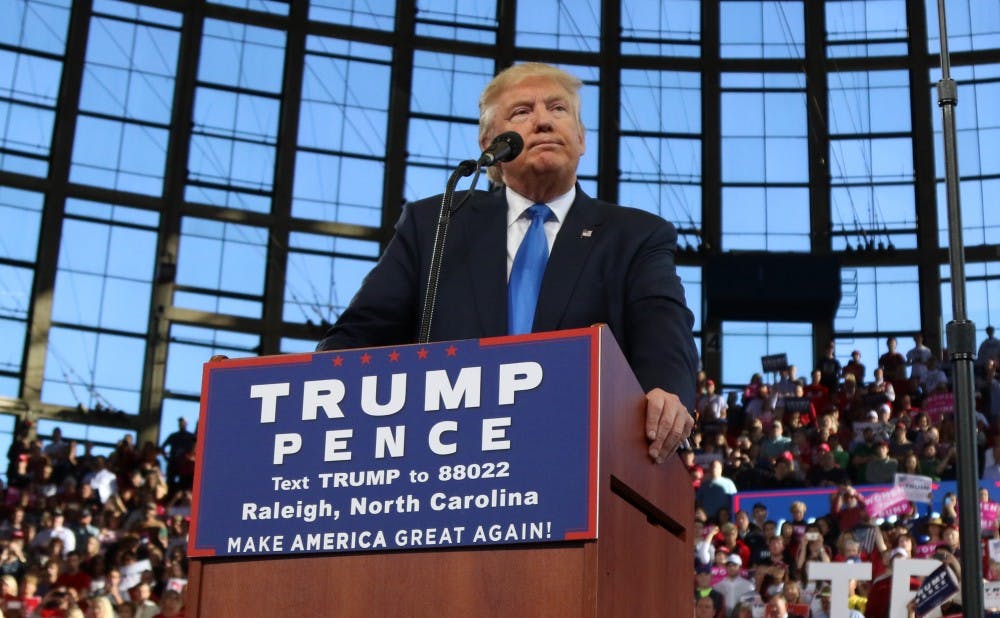Donald Trump’s recent proposal to end birthright citizenship was met with outrage and rejection from the left and right alike. Yet while such a wildly unconstitutional act would likely never be possible, there is clearly support for such a sentiment to reach the mainstream. As the child of immigrants and a ‘beneficiary’ of birthright citizenship myself, I find it important to explore the history of birthright citizenship, to explain exactly what an attack on it means.
For much of American history, denial of citizenship has been a means to send a bigger message about who deserves to be American. And for much of history, the notion of citizenship as a proxy of American personhood been inseparable from whiteness.
Before the Civil War, the issue of citizenship was largely seen as the jurisdiction of states, leaving the case of freed slaves to be a point of ambiguity between slave states and free states. Yet with the Dred Scott v. Sanford decision of 1857, a clear line was drawn. It declared that African Americans, as “beings of an inferior order,” were not and could never be citizens of the United States. And thus, citizenship was used to formally declare that ‘we the people’ would never include Black Americans.
After the Civil War, the 14th Amendment reversed Dred Scott and granted citizenship to African Americans, declaring that “All persons born or naturalized in the United States, and subject to the jurisdiction thereof, are citizens of the United States and of the State wherein they reside.” Birthright citizenship was won by freed slaves, “a radical act that disentangled citizenship from whiteness, and extended legal rights to black people—and later, other people of color—by making citizens out of noncitizens and their children.”
However, in the late 1800s, denial of citizenship was again used to defend a vision of a white America. Based on white supremacist fears that immigrants were threatening racial purity, the Chinese Exclusion Act barred an entire racial group from immigrating and becoming citizens.
In this era of Chinese Exclusion, Wong Kim Ark, a Chinese-American man born in San Francisco to parents who were barred from naturalizing, was denied re-entry to the U.S. on the grounds that he was not a citizen. He sued in the historic United States v. Wong Kim Ark and won, establishing the precedent that all children born in the U.S., regardless of their parents’ nationality, are citizens by guarantee of the 14th Amendment.
Birthright citizenship rejected the white supremacist notion that certain groups of people fundamentally do not deserve to be American. It’s no wonder that it was met with such bitter opposition in 1868 and 1898: it created a radical promise of equal personhood under the law.
And it is telling that this promise is today being called “ridiculous” by the President.
Today’s debate isn’t only about the details of immigration policy. Today’s attack on birthright citizenship is fundamentally a statement about who deserves to be in this country. It targets immigrants with the most dehumanizing language possible, painting a picture where they are not only undeserving, but a threat to American identity.
They exploit ‘chain migration’ using ‘anchor babies.’ They come from ‘s**thole countries,’ in migrant caravans where “criminals and unknown Middle Easterners are mixed.” They are a burden on society, and should be treated as such.
Put in context, this morally bankrupt attack on birthright citizenship follows a rich history of policies defending a white nationalist vision of America: Non-white immigrants are a threat to racial purity.
Just look at our own history and you can find the same substance under a different name. Today’s family separation policy, Muslim ban, immigrant internment camps. Yesterday’s Native American family separation, Chinese Exclusion, Japanese Internment.
This strategy of divide and conquer, categorize and marginalize, has always relied on the claim that hyphenated-Americans, Muslims, Jews, immigrants, and refugees are not real Americans. That they are at best conditionally accepted at the margins, and at worst an undeserving ’other’ to be repudiated and stamped out.
Yet as long as long as there have been policies that uphold white supremacy, there have also been the struggles of those at the margins to demand their legal personhood, citizenship and place among ‘we the people.’
Even after the Supreme Court denied them citizenship in Dred Scott, African Americans never deferred to it. They continued to pursue it, asserting their citizenship through practice until it was written into law by the 14th Amendment. And when Chinese-Americans were denied citizenship, individuals like Wong Kim Ark resisted and challenged in the courts. Undocumented Americans today continue this struggle.
To those historically denied citizenship, America never was America to them. Yet like Dred Scott and Wong Kim Ark, marginalized Americans have continually struggled for that dream of the America that could be, and should be.
The President cannot erase the existence of Americans by denying them citizenship. He cannot erase the existence of transgender people with an executive order. And he cannot erase immigrants and their children with an executive order.
I am a child of immigrants.
Because I was born in the United States to immigrants, the Congress of 1898 might have called me an ‘accidental citizen,’ and the President today just might call me an ‘anchor baby.’ But in a way, the President is right. We, the children of immigrants, do anchor ourselves and our families, in places that simultaneously embrace us and deny us.
My mother, whose family has been sent country to country by World War II and multiple revolutions, has always told me, “It’s not where your parents are from. It’s the place that gives you air to breathe and room to grow, that’s where you call home.”
So we plant ourselves in American soil, breathe the air, and we grow. And we flourish. And because we are American, we are here to stay.
In answering, “Whose America?” We say, “our America.”
Get The Chronicle straight to your inbox
Signup for our weekly newsletter. Cancel at any time.

